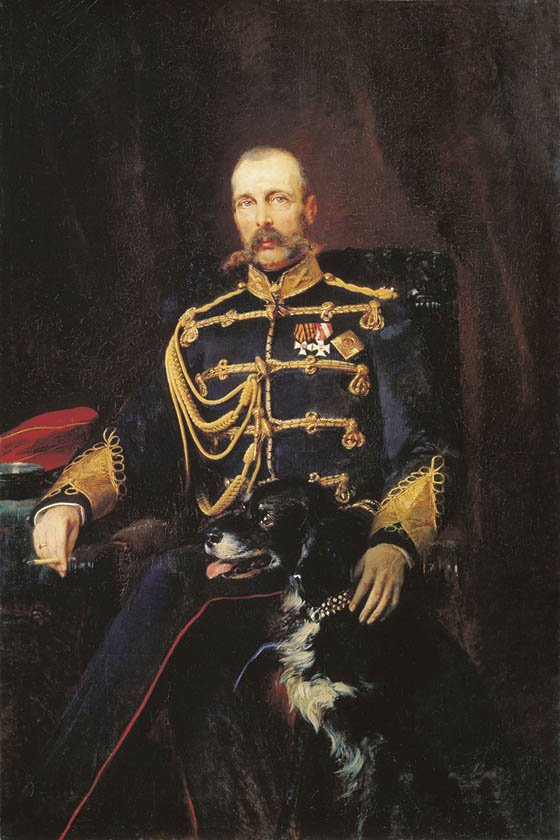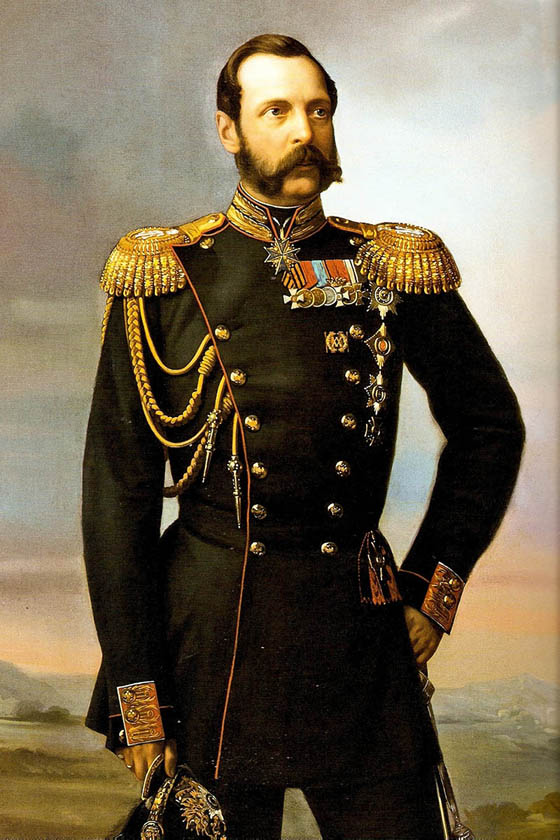Alexander II ruled from 1856 to 1881. Generals Merder and Kavelin, as well as poet V.A. Zhukovsky, were his teachers and imparted to him liberal views and a romantic outlook on life. Alexander II canceled the serfdom and then conducted a number of reforms (territorial, judicial, military, etc.). He is known in the Russian history as Alexander II the Liberator. The historians didn’t name him Great, but his reforms are seen and defined as a Great ones.
Alexander II was born on April 17th (29), 1818 in Moscow. The twelfth Russian emperor ascended the throne as the elder son of Nikolay I after his father died. His mother was the Grand Duchess Alexandra Fedorovna, spouses – Maria Aleksandrovna (Maksimiliana-Vilgelmina Gessenskaya) and Ekaterina Mikhailovna Dolgorukova, Her Highness Princess Yurevskaya.
The coronation took place on August 26th (September 7th), 1856, and he ruled until his death on March 1st (13), 1881 by a terrorist attack. Alexander III became his successor on the throne.
Main events during the rule of Alexander II (1855-1881):
- 1856 – signing of the Paris Treaty
- 1857 – liquidation of military settlements
- 1861 – abolition of serfdom
- 1863 – abolition of corporal punishment
- 1864 – victory in the War in Caucasus
- 1864 – territorial regulations
- 1864 – judicial charters
- 1870 – city regulations
- 1877-1878 – Russian-Turkish War.
The emperor died in St. Petersburg in 1881 in a terrorist act on his way to sign the Constitution, which was named the “Constitution of Loris-Melikov”. It included a set of reforms, including projects for tax reforms, reorganization of local governing authorities, expansion of the rights of Old Believers, revision of the passport system, settlement of relations between the factory owners and the workers, changes in the national education system, and attraction of “knowledgeable people” (elected representatives of nobility, territorial authorities and bodies of city management) to discussion of projects related to certain government orders.
Before the trip, which had become fatal for the emperor, Alexander II said to his sons, Alexander (future emperor Alexander III) and Vladimir the words, which made it to the history books: “I don’t hide from myself the fact that we walk on the road of Constitution”. The constitutional process in Russia came to a halt with the emperor’s death.

